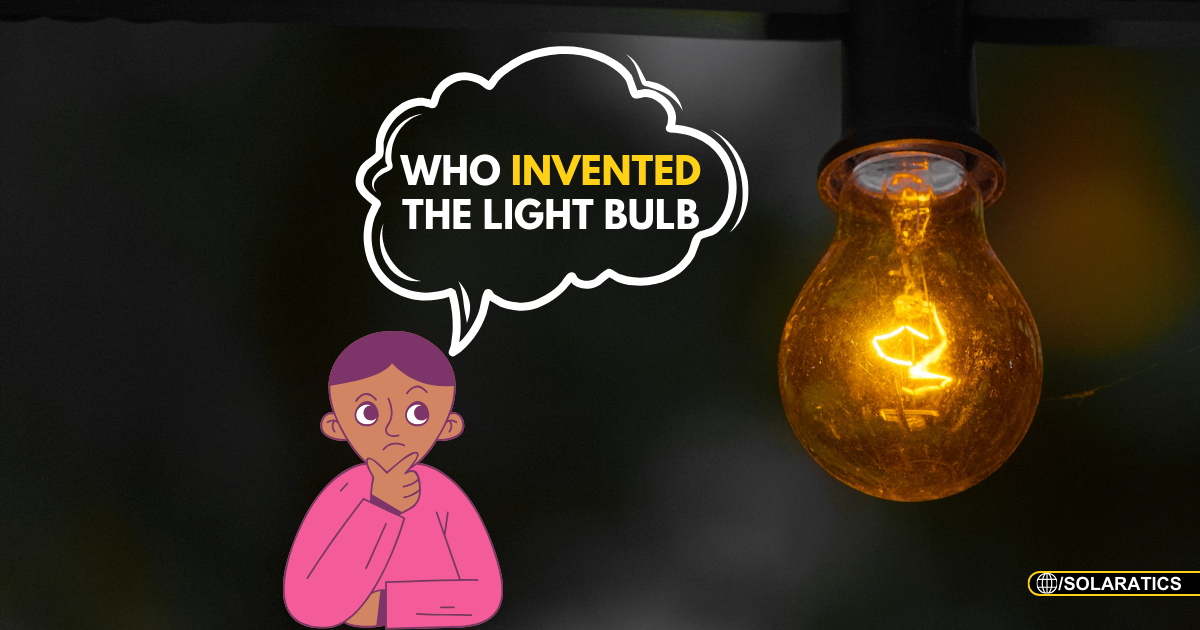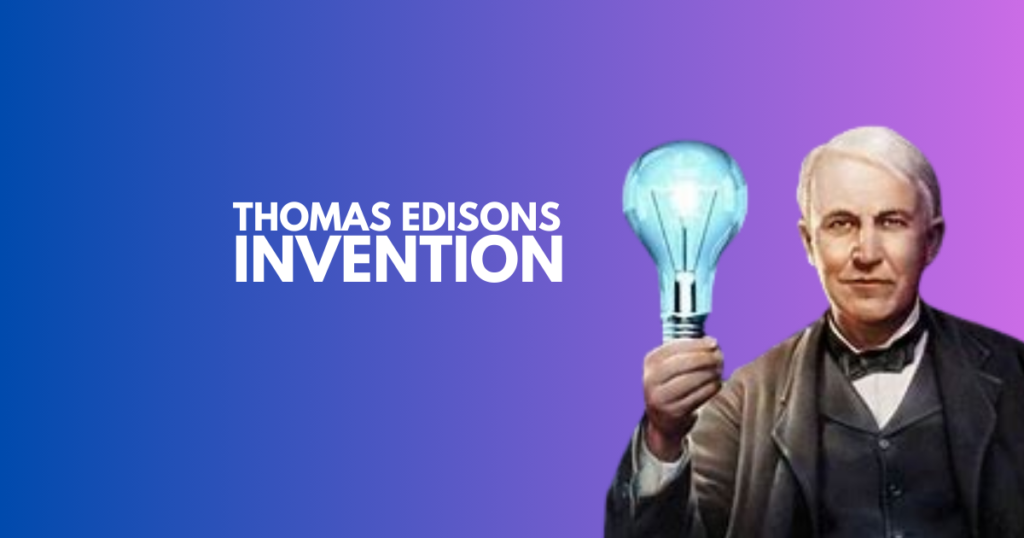Who Invented the Light Bulb? A Journey Through Illumination History

For centuries, people relied on fire, candles, and oil lamps to illuminate their homes and workplaces. These methods were often inconvenient, dangerous, and unreliable.
But then came the light bulb, a revolutionary invention that transformed the way we live and work. However, the question of who invented the light bulb is not as simple as it seems.
Predecessors of the Modern Light Bulb
The story of the light bulb goes back much further than Thomas Edison’s famous invention in 1879. Many inventors and scientists paved the way, laying the groundwork for the development of a practical and long-lasting light source.

Early Experiments
In the early 1800s, scientists like Humphry Davy and Warren de la Rue experimented with creating light using electricity. They discovered that passing electricity through certain materials could produce a glow, but these early attempts were inefficient and impractical.
The Arc Lamp
In 1809, Humphry Davy invented the arc lamp, which used electricity to create a bright light between two separated carbon rods. While providing a powerful light source, arc lamps were too harsh and noisy for everyday use.
The Incandescent Lamp
Building on earlier work, inventors like James Bowman Lindsay and Joseph Swan developed the concept of the incandescent lamp, which used a filament heated by electricity to produce light. However, their filaments burned out quickly, limiting their practicality.
Thomas Edison and the Invention of the Practical Light Bulb
While many contributed to the development of the light bulb, Thomas Edison is often credited with its invention in 1879. However, it’s important to understand that his achievement wasn’t creating the first light bulb, but rather developing a commercially viable one.

Edison’s Approach To the Invention of Light Bulb
Edison and his team at Menlo Park, New Jersey, focused on creating a light bulb that was long-lasting, efficient, and affordable. They experimented with different filament materials, such as platinum and carbonized bamboo, eventually settling on a carbonized bamboo filament that could last for over 1,500 hours.
Beyond the Bulb
Edison’s contribution extended beyond the bulb itself. He also developed a complete electrical system, including generators, power grids, and switches, making widespread use of his light bulb possible.
Development and Improvement of the Light Bulb
Since Edison’s invention, the light bulb has undergone continuous improvement. Here are some key advancements:
- Tungsten Filaments: In the early 1900s, tungsten filaments replaced carbon filaments, offering greater durability and higher light output.
- Inert Gas Filling: Filling the bulb with inert gases like argon further extended filament life and improved efficiency.
- Halogen Lamps: Halogen lamps, introduced in the 1960s, offered brighter and more efficient light compared to traditional incandescent bulbs.
- LED Lights: In recent decades, LED (light-emitting diode) lights have emerged as the most energy-efficient and long-lasting lighting option.
Impact of the Light Bulb on Society
The invention of the light bulb has had a profound impact on society in numerous ways:

Extended Daytime Activities
The ability to work and play after sunset extended the productive hours and leisure time for individuals and businesses.
Improved Safety
Reliable lighting reduced accidents and crime rates associated with poor visibility at night.
Educational and Technological Advancements
Improved lighting facilitated advancements in education, healthcare, and various industries that rely on precise visual tasks.
Conclusion
The story of the light bulb is a testament to the power of human ingenuity and collaboration. While Thomas Edison is widely recognized for his contributions, the invention is the culmination of the efforts of numerous scientists and inventors throughout history.
Today, the light bulb continues to evolve, offering ever-improving efficiency and lighting solutions for various needs.
Next time anyone asks you “Who invented the light bulb” you can confidently say “Thomas Edison “.
Also Explore
100W Bulb Lumens: Efficiency and Brightness
Solar Water Heater Size: Finding the Perfect Fit for Your Home
Solar Lights Not Working? A Simple Guide to Replacing Solar Bulbs
